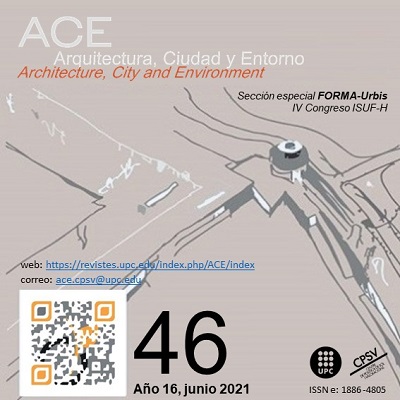Research Aporiae in Architecture: Adapting the Scientific Model to the Production and Dissemination of Explicit Knowledge
DOI:
https://doi.org/10.5821/ace.16.46.9531Keywords:
Practice-based research, Architecture journals, Academic papers, Knowledge productionAbstract
The multi-disciplinary condition of architecture involves a diversity of knowledge. Much of this knowledge is tacit; it is acquired and disseminated from practice. However, this paper deals with the explicit architectural knowledge that can be clearly conserved and transmitted. In the 20th century, architecture had consolidated its theoretical production through independent magazines and books, without peer-review but current academic demands have strengthened an unusual scientific research model for architecture. The new model has sparked debates about the relevance and the possibility of adapting creative disciplines to scientific research and dissemination standards. This article examines the hegemonic forms of production and dissemination of architectural knowledge to put such problems in perspective. It provides a theoretical overview of what research means in architecture and argues that, in addition to its technical component, architecture has a socio-cultural role that constitutes a form of knowledge to be developed through scientific research. To demonstrate this, it presents an original analysis of paradigmatic theories of the 20th century (Le Corbusier and Robert Venturi with Denise Scott Brown) applying the criteria of a methodical production of knowledge liable to be published in scientific journals.
Downloads
Published
Issue
Section
License
| INTELECTUAL PROTECTION CRITERIA |
At this moment, it is count with the "Oficina Española de Patentes y Marcas", while global protection it is being processed by the World Intelectual Property Organization (OMPI/WIPO). Nevertheless the International Standard Serial Number Office (ISSN) has given the following numbers ISSN: 1886-4805 (electronic version) and 1887-7052 (paper version). All articles will be peer reviewed, using double blind reviewing. |
| COPYRIGHT |
The article contents and their comments are authors exclusive liability, and do not reflect necessarily the journal editor commitee's opinion. All ACE published works are subject to the following licence CC BY-NC-ND 3.0 ES http://creativecommons.org/licenses/by-nc-nd/3.0/es/ It implies that authors do not hold nor retain the copyright without restrictions but only those included in the licence. |


































